Top 25 Respiratory Therapy Online Bachelor’s

Find your perfect value college
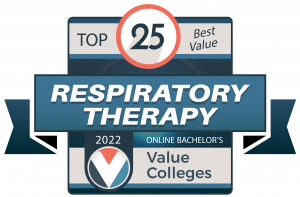
Why get a bachelor’s degree in respiratory therapy? If you have an interest in the medical field, respiratory therapy is one of the most in-demand and best-paying specializations. A respiratory therapist works on the cardiopulmonary system of the human body to provide care for the lungs. They use various tools and machines in pursuit of assisting patients to get better or manage a chronic pulmonary condition. Getting a bachelor’s degree in respiratory therapy trains you in the use of machinery and how to use your judgment to determine the type of care a patient needs. You work with nurses and physicians to create treatment plans and make sure they’re carried out properly.
Getting a bachelor’s degree in respiratory therapy enables you to work in the field in advanced positions along with the opportunity to enter into leadership roles. If you have already earned your associate’s degree in respiratory therapy, and have worked in a clinical setting, returning to school to earn your bachelor’s degree in respiratory therapy helps you advance your healthcare career. You’ll return to the field with more applicable knowledge and a desirable degree that opens up more opportunities for employment and job satisfaction.
Featured Programs
Methodology: Ranking the Best Respiratory Therapy Online Bachelor’s Programs
For the Value Colleges ranking of the best respiratory therapy bachelor’s programs, VC editors researched accredited colleges and universities recognized for value. We have ranked programs according to their tuition rate, student satisfaction, and graduate salary, using current IPEDS and Niche data. Both online and on-campus programs are featured.
1. University of Missouri
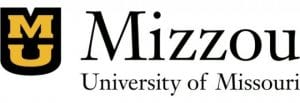
The University of Missouri offers a Bachelor of Health Science (BHS) in Clinical and Diagnostic Sciences with an Emphasis in Respiratory Therapy that is one of the leading bachelor’s degree in respiratory therapy in the nation, according to US News and World Report. The University of Missouri’s undergraduate degree in respiratory therapy prepares students for rewarding careers as community educators, consultants, and advanced clinicians, among others. This online program includes these core requirements, clinical ethics, adult critical care, and advanced mechanical ventilation theory, to name a few.
The University of Missouri (Mizzou) was established under the Morrill Land Grant Act in the late 1830s. In addition, The University of Missouri is a space-grant institution of higher education, with a student enrollment that exceeds 30,400 undergraduate and graduate students each year studying online and on-campus.
Highlight: The University of Missouri’s Columbia campus is a national historic district and home to the State Historical Society.
Program: Bachelor of Health Science in Clinical and Diagnostic Sciences with an Emphasis in Respiratory Therapy (BHS)
2. Oregon Institute of Technology

Oregon Institute of Technology offers a BS in Respiratory Care that integrates coursework that includes scientific & leadership principles. Oregon Institute of Technology’s online undergraduate degree program is ranked among the top 2% of the leading bachelor’s degree in respiratory therapy in the United States. Featured classes for Oregon Tech’s respiratory therapy degree include hyperinflation therapies, critical care, respiratory gas therapeutics, and pulmonary pathology, to name a few.
Oregon Institute of Technology is a multiple-campus university that was established in 1947 as Oregon Vocational School to train WWII returning veterans. The main campus is augmented by its Wilsonville campus and Oregon Institute of Technology’s platform serving 5,400 students each year.
Highlight: The first classes for the Oregon Institute of Technology were held in a hospital deactivated from the Marine Corp.
Program: Bachelor of Science in Respiratory Care
3. University of Kansas Medical Center
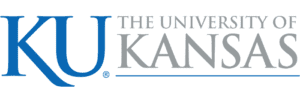
The University of Kansas Medical Center offers a bachelor’s degree completion program in respiratory care and diagnostic science that can be completed entirely online. Students applying to the University of Kansas Medical Center’s top bachelor’s degree in respiratory therapy must hold an associate degree. Coursework for the University of Kansas Medical Center’s undergraduate respiratory therapy degree program is delivered in eight-week modules and includes chronic disease management, management, ethics and law, and community and global health, to name a few.
The Medical School campus @ the University of Kansas Medical Center (KU Med) was founded in 1920. The University of Kansas Medical Center also maintains campuses in Salina and Wichita that serve approximately 3,700 students each year vying for academic certificates and programs from KU’s School of Health Professions, KU’s School of Medicine, and KU’s School of Nursing.
Highlight: Several politicians and medical professionals are alumni of the University of Kansas Medical Center.
Program: RT to Bachelor’s in Respiratory Therapy
4. Texas State University

Texas State University offers a Registered Respiratory Therapist (RRT) to Bachelor of Science in Respiratory Care completion degree (B.S.R.C.) program – designed for therapists who have previously earned an Associated degree in respiratory care. This bachelor’s degree in respiratory therapy program from Texas State University is available entirely online – with eight-week module classes offered at accelerated rates. Featured classes for this bachelor’s degree in respiratory therapy include advanced ventilator concepts, hemodynamic diagnostics, interdisciplinary healthcare, and disease management.
Texas State University was founded as a teacher’s training school in the late 1890s. Texas State University now operates as the 5th largest higher learning institution in the Lone Star State, with more than 38,150 undergraduate and postgraduate students.
Highlight: In addition to the San Marcos campus, Texas State University also operates a satellite facility at its Round Rock campus in the northern part of Austin.
Program: Registered Respiratory Therapist to Bachelor of Science in Respiratory Care (R.R.T.-to-B.S.R.C.)
5. University of North Carolina at Charlotte

The University of North Carolina at Charlotte offers a BS in Respiratory Therapy that students can finish 100% online. The University of North Carolina’s bachelor’s degree in respiratory therapy program offers a start date in the Spring and the Fall. Sample core classes for UNC Charlotte’s undergraduate degree completion program include critical care monitory and mechanical ventilation, outpatient services in respiratory therapy, health outcomes & quality assessment, and health communications, plus a capstone project.
The University of North Carolina at Charlotte (Charlotte) was developed as an academic center for the University of North Carolina in 1946 and then became a junior college two years later. The University of North Carolina at Charlotte now operates as the largest university in the greater Charlotte vicinity, with more than 30,050 students each year.
Highlight: The University of North Carolina ( Charlotte holds the distinction of being the fastest-growing campus of the University of North Carolina system.
Program: Bachelor of Science in Respiratory Therapy
6. Nebraska Methodist College of Nursing & Allied Health
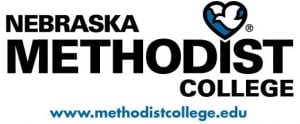
Nebraska Methodist College of Nursing & Allied Health offers a BS in Respiratory Therapist that has received accreditation by the Commissions on Accreditation for Respiratory Care. This bachelor’s degree in respiratory therapy program from Nebraska Methodist College requires a total of 129-semester units, but applicants are required to hold an associated degree to be eligible for admission. In addition to a capstone project, Nebraska Methodist College’s undergraduate respiratory degree includes these classes, case management, and the respiratory practitioner, healthcare quality, and wellness assessment and design in healthcare, among others.
Founded as a private, nonprofit school in 1891, the Nebraska Methodist College of Nursing & Allied Health (NMCNAH) now offers a variety of healthcare programs and degrees at the associate, bachelor’s, master’s & doctoral levels.
Highlight: About 1,000 undergraduate and graduate students attend classes offered by the Nebraska Methodist College of Nursing & Allied Health.
Program: BS in Respiratory Therapist
7. Concordia University – Saint Paul

Concordia University-Saint Paul offers a BS in Pulmonary Science that ranks among the most affordable bachelor’s degrees in respiratory therapy programs in Minnesota and beyond. The total credits required for Concordia University’s undergraduate respiratory therapy program is 120, of which 44 credits are dedicated to the major. Concordia University offers a generous transfer credit policy that allows for up to 90 credits to be transferred, if they may eligibility requirements. Featured classes include epidemiological foundations and advances in pharmacology in critical care medicine, among others.
Founded in the mid-1890s as a private institution of higher education by the Lutheran Church (Missouri Synod), Concordia University (CU Saint Paul) is a member school of the Concordia System.
Highlight: Concordia University’s online platform and St. Paul campus serve more than 5,500 students.
Program: Bachelor of Science in Pulmonary Science
8. Midwestern State University
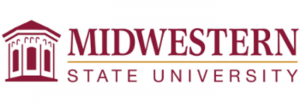
Midwestern State University offers a BS in Respiratory Care (BSRC) that is ranked among the top bachelor’s degrees in respiratory therapy programs by BestColleges.com. The online undergraduate degree from Midwestern State University is offered in an accelerated format that can be completed in only one year. The total semester credits for these respiratory degrees are 120. Sample coursework for Midwestern State University’s respiratory therapy completion program includes adult critical care, respiratory pathophysiology, and community health and pulmonary diagnostics, to name a few.
Established in 1922 as a two-year junior college, Midwestern State University now operates as the Lone Star State’s only four-year public school dedicated to liberal arts. Midwestern State University is a member school of the Texas Tech University System, with a student enrollment that exceeds 6,000- students annually.
Highlight: Midwestern State University is organized into seven colleges/schools.
Program: Bachelor of Science in Respiratory Care
9. Ferris State University

Ferris State University offers a BS in Respiratory Therapy that has been developed for students who hold a two-year degree in respiratory care and an RRT license from the National Board of Respiratory Care. Ferris State University’s bachelor’s degree in respiratory therapy program is available entirely online. Students enrolled in Ferris State University’s online respiratory degree are prepared after graduation for more advanced careers in respiratory care through the acquisition of cutting-edge skills and expert faculty instruction.
Ferris State University was established in the mid-1880s as an industrial school. Ferris State University now operates as one of the top ten largest schools in Michigan, with a student enrollment that exceeds 14,550 undergraduate and graduate students annually.
Highlight: Ferris State University holds the distinction of being the only university in the state that was founded by one individual.
Program: BS in Respiratory Therapy
10. Northern Arizona University
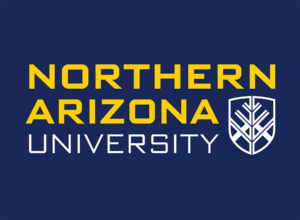
Northern Arizona University offers a Bachelor of Health Sciences (BSH) in Respiratory Care that can be completed entirely online or on the Flagstaff campus. Students enrolled in Northern Arizona University’s bachelor’s degree in respiratory therapy program must have already completed or are pursuing an associate degree in respiratory care from a regionally accredited school. The capstone and coursework for Northern Arizona University’s undergraduate degree are offered in a flexible and convenient format for working learners.
Founded in the late 1890s in the Arizona Territory, Northern Arizona University now operates as a space-grant school and is ranked among the most innovative in Arizona and beyond. More than 28,400 undergraduate and postgraduate students annually.
Highlight: In addition to the Flagstaff campus, Northern Arizona University maintains academic campuses across the state of Arizona and online.
Program: Bachelor of Health Sciences, Respiratory Care
11. Georgia Southern University

Georgia Southern University offers a BS in Respiratory Therapy that mandates enrolled students to complete a minimum of 130-semester units to meet Georgia Southern University’s graduation criteria. Georgia Southern University’s bachelor’s degree in respiratory therapy program is available online or on Georgia Southern University’s campus in Savannah. Graduates of Georgia Southern University’s undergraduate respiratory degree find rewarding work as a pulmonary rehabilitation specialist, disease prevention counselor, or case manager, among others. This Bachelor of Science (BS) degree has been accredited by the Commission on Accreditation for Respiratory Care.
Established in 1906 as an agricultural and mechanical school, Georgia Southern University is now a space-grant higher learning institution with more than 25,950 students vying for degrees and certificates across all campuses and online.
Highlight: Georgia Southern University is a member school of the University of Georgia system.
Program: Bachelor of Science in Respiratory Therapy
12. University of Cincinnati

The University of Cincinnati offers a BS in Respiratory Therapy that ranks among the most innovative of Ohio’s bachelor’s degree in respiratory therapy programs. This online undergraduate degree in respiratory therapy from the University of Cincinnati requires degree applicants to hold an associated degree to be approved for admission. This completion program requires students to finish a minimum of 50-semester units. The University of Cincinnati’s baccalaureate degree in respiratory therapy has provisional accreditation from the Commission on Accreditation for Respiratory Care. Featured classes for the University of Cincinnati’s degree include research methods and analysis, integration of delivery respiratory therapy, and aging and respiratory therapy, plus a capstone project.
The University of Cincinnati was founded as Cincinnati College in 1819. With more than 46,300 students, the University of Cincinnati is the second largest in the state of Ohio as well as its oldest established school. In addition, the University of Cincinnati is a space-grant school with multiple campuses across the greater Cincinnati region.
Highlight: The University of Cincinnati is organized into fourteen schools/colleges.
Program: BS in Respiratory Therapy
13. Cardinal Stritch University

Cardinal Stritch University offers a BS in Respiratory Therapy (BS-RT) that is recognized among Milwaukee’s leading bachelor’s degree in respiratory therapy programs. Cardinal Stritch University’s baccalaureate degree in respiratory therapy can be completed entirely online in as few as 24 months for those students who have the time to study full-time. The featured core classes for this undergraduate degree from Cardinal Stritch University include advanced concepts in respiratory disease, hemodynamic monitoring, and advanced mechanical ventilation, plus a relevant capstone, to name a few.
Established as St Clare College in the 1930s as a teacher’s training school, Cardinal Stritch University now operates as a multiple campus, private school with a Roman Catholic affiliation. The school’s suburban campuses in Wisconsin serve nearly 2,500 students each year.
Highlight: Cardinal Stritch University’s campus is less than ten miles from downtown Milwaukee and less than one mile to Lake Michigan.
Program: BS-RT Completion
14. University of Michigan-Flint

The University of Michigan – Flint offers a BS in Respiratory Therapy (BSRT) that is designed for working learners who hold an RRT (Registered Respiratory Therapy) credential and associate degree. This online bachelor’s degree in respiratory therapy program can be completed in as few as twelve months if studying full-time and is the only online program in the greater Flint region. Students have the option of a fall or winter entry term. Degree candidates are prepared to sit for several respiratory therapy professionals’ credential exams, including NPS, ACCS, RPFT, SDS, and NBRC, to name a few.
The University of Michigan in Flint was established in the mid-1950s as Flint Junior College and is one of two academic regional campuses of the University of Michigan. Approximately 6,500 students attend classes on-campus and online each year.
Highlight: The University of Michigan in Flint offers more than 50 undergraduate and graduate programs from its six colleges/schools.
Program: Bachelors of Science in Respiratory Therapy
15. University of Southern Indiana
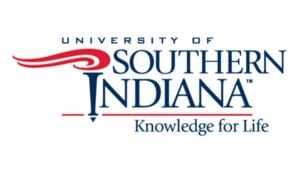
The University of Southern Indiana offers a BS in Respiratory Therapy that is available as an entry-level four-year degree, offered on campus, or a complete program that is available entirely online. Featured classes for the University of Southern Indiana’s bachelor’s degree in respiratory therapy program include respiratory therapy modalities, cardiopulmonary pharmacology, mechanical ventilation, and respiratory therapy disease management concepts, plus a respiratory therapy internship, to name a few.
The University of Southern Indiana (USI) is a public, space-grant institution of higher education that was established in the mid-1960s as a regional academic facility for the already existing Indiana State University.
Highlight: The University of Southern Indiana’s Evansville campus and online platform serves more than 10,550 undergraduate and postgraduate students annually.
Program: Bachelor of Science degree in Respiratory Therapy
16. Jacksonville State University

Jacksonville State University offers a BS bridge program in Respiratory Therapy (RRT to BS) that can be completed entirely online. Jacksonville State University’s bachelor’s degree in respiratory therapy completion program is designed for registered respiratory therapists and can be finished in only twelve months. Coursework for Jacksonville State University’s undergraduate degree in respiratory therapy includes advanced ventilatory support, critical care monitoring, and patient care management strategies, to name a few.
Jacksonville State University was founded as a state-run normal school in the mid 1880s. Jacksonville State University’s six colleges/schools serve more than 9,450 students on its suburban campus and online. Jacksonville’s marching band was established in the 1960s and continues to date.
Highlight: In addition to the main campus in Jacksonville, Jacksonville State University maintains a campus in McClellan and Fort Payne, Alabama.
Program: Respiratory Therapy – BS
17. Misericordia University

Misericordia University’s BS in Health Science – Respiratory Therapy specialization offers working students a degree completion program to earn their bachelor’s online. This fully online option is designed to continue the associate’s program from Luzerne County Community College, but as an online program, the BS is open to students from far and wide.
Misericordia University is a private Catholic institution in Pennsylvania, founded by the Religious Sisters of Mercy. Today, Misericordia has become known as a leader in online education, including bachelor’s completion programs and master’s degrees.
Highlight: Misericordia is home to one of the few Shakespeare Gardens in the US – a garden planted with every tree and flower named in the Bard’s works.
Program: Bachelor of Science in Health Science with a Specialization in Respiratory Therapy
18. East Tennessee State University
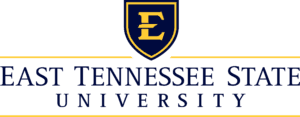
East Tennessee State University offers a BS in Cardiopulmonary Science (Respiratory Therapy) which is one of the most innovative bachelor’s degrees in respiratory therapy programs in Tennessee. East Tennessee State University’s online completion respiratory program has received accreditation from the Commission on Accreditation for Respiratory Care. The total credits required to earn this Bachelor of Science degree in respiratory therapy from East Tennessee State University is 120, of which 79 credits are pulled from the respiratory therapy major’s curriculum. Featured classes include patient care and assessment, research in allied health, and information management for health professionals, to name a few.
East Tennessee State University is a research school that was founded in 1911. The school is a multiple campus higher learning institution with facilities in Johnson City, Elizabethton, Sevierville, and Kingsport, Tennessee, that serve nearly 14,500 students each year.
Highlight: East Tennessee State University is often ranked among the top schools for rural medicine.
Program: BS in Cardiopulmonary Science (Respiratory Therapy)
19. Youngstown State University

Youngstown State University offers a BS advancement/completion program in Respiratory Therapy that has been accredited by the Commission on Accreditation for Respiratory Care. Youngstown State University’s bachelor’s degree in respiratory therapy program requires 48-semester credits – through the school’s flexible online learning platform. Sample classes for this online completion track include special topics in respiratory care, pathology of infectious diseases, and environmental health concerns, to name a few.
Youngstown State University (YSU) was established more than a century ago in 1907 as Youngstown College. Youngstown State University now operates as a space-grant school with more than 12,050 students attending classes online and on-campus, vying for the more than 200 academic programs at the bachelor’s and graduate levels.
Highlight: Youngstown State University is also recognized as the most eastern member school of the state’s university system.
Program: Bachelor of Science degree in Respiratory Therapy
20. Dalton State College
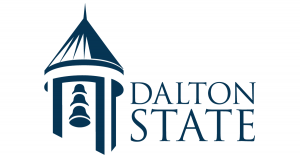
Dalton State College offers two of Georgia’s leading bachelor’s degree in respiratory therapy programs with its Bachelor of Science (BS) degree program in Respiratory Therapy (122 to 123 credits) and an Associate of Applied Science degree in Respiratory Therapy Technology (87 credits). Featured classes for these respiratory therapy degrees include health care compliance, respiratory care for geriatrics, health care ethics and law, ethical issues in science, and an advanced seminar in critical care and mechanical ventilation, to name a few.
Dalton State College was founded as a junior college in the mid 1960s but became a four-year university and is now a member school of the University System of Georgia, with more than 5,000 students vying for degrees offered online and on-campus in Dalton, Georgia.
Highlight: Dalton State College’s campus is about an hour from downtown Atlanta and only a half-hour to Chattanooga, Tennessee.
Program: BS in Respiratory Therapy
21. Kent State University

Kent State University offers a BS in Respiratory Care that ranks among the most innovative of bachelor’s degree in respiratory therapy programs in Ohio and beyond. Students enrolled in KSU’s completion respiratory degree can complete this online degree in as few as four semesters. This undergraduate degree from Kent State University has received accreditation from the Commission on Accreditation for Respiratory Care and offers a start date during each semester. Featured classes for this degree include research development in respiratory care, information and patient care, professional practice in respiratory care, and a related practicum, to name a few.
Kent State University is a space-grant institution of higher education that was established in 1910. Kent State University’s multiple campuses in Ohio serve more than 30,000 undergraduate & postgraduate students annually.
Highlight: Kent State University is a member of the state’s university system and Ohio’s third-largest campus of the eight-school system.
Program: Bachelor of Science in Respiratory Care
22. Carlow University

Carlow University offers a BS in Respiratory Therapy that is one of the most innovative bachelor’s degrees in respiratory therapy programs in the greater Pittsburgh region. This online completion program requires 30 to 32 credit units and can be completed in as few as 18 months. Core courses for this undergraduate program include enhanced theories in respiratory care, respiratory care practice in acute and alternative settings, and medical ethics and legal principles in respiratory care, to name a few.
Established in the late 1920s by the Sisters of Mercy, Carlow University now serves more than 1,350 students each year online and on the school’s urban campus in Pittsburgh.
Highlight: Carlow University consists of a trio of campuses that include Oakland (the main campus), Cranberry, and Greensburg.
Program: Respiratory Care Completion Program
23. Missouri Southern State University

Missouri Southern State University offers a BS in Health Science – Respiratory Therapy that is among the leading bachelor’s degrees in respiratory therapy programs in Missouri and beyond. Sample classes that degree candidates must complete for this undergraduate program include human anatomy and physiology, cardiopulmonary sciences, and introduction to mechanical ventilation and life support technology, plus a clinical or ab professional experience, to name a few.
Missouri Southern State University (MSSU) is a public university that was established in the late 1930s as Joplin Junior College, with an initial enrollment of 114 students and less than ten faculty members. The university’s urban campus covers more than 300 acres and serves more than 5,550 postgraduate & undergraduate students each year.
Highlight: Missouri Southern State University has produced a number of NFL professional players and coaches.
Program: Bachelor of Science in Health Science – Respiratory Therapy
24. San Joaquin Valley College
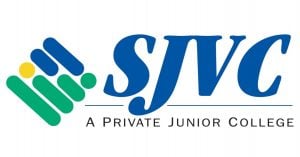
San Joaquin Valley College offers a BS in Respiratory Therapy (BSRT) designed for working Registered Respiratory Therapists. San Joaquin Valley College’s bachelor’s degree in respiratory therapy completion program can be completed in as few as sixteen months and offers some of the most affordable tuition rates in California. This convenient respiratory therapy undergraduate completion program is offered entirely online and sequenced to meet a balanced work-school life. Applicants to this undergraduate degree from San Joaquin Valley College must hold an associate degree in respiratory care that is from an accredited school.
San Joaquin Valley College was founded as a for-private institution of higher education in 1977. San Joaquin Valley College offers programs in medical, dental, criminal justice, and veterinary science to students enrolled on its various campuses and online.
Highlight: Students from all over the country may attend classes offered by San Joaquin Valley College.
Program: Bachelor of Science in Respiratory Therapy (BSRT)
online
25. Newberry College
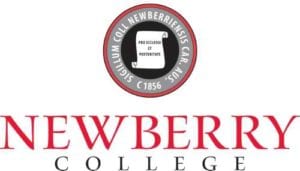
Newberry College offers a BS in Respiratory Therapy that is ranked among the most innovative online bachelor’s degrees in respiratory therapy programs in the southern US. Classes for this completion program for respiratory therapists are delivered in 7.5-week modules and include ethics and professionalism, community health & rehabilitation, applied disease management, pharmacology in disease management for respiratory care, advanced critical care monitoring, and advanced airway management for respiratory care, plus a relevant capstone project, to name a few.
Newberry College is a private institution of higher education with an affiliation with the Lutheran Church that was founded in the late 1850s. Newberry College seeks to develop the whole student – including personal and intellectual development, with a spin on citizenship across the world.
Highlight: Newberry College’s original seminary now operates in Columbia, South Carolina.
Program: Bachelor of Science degree in Respiratory Therapy
What Can I Do with a Bachelor’s in Respiratory Therapy?
The core duty of a respiratory therapist is that of helping people with chronic lung issues, such as a disease or a disorder. There are a lot of respiratory therapy jobs that utilize this core duty while working and interacting with patients in different settings. The fact that the cardiopulmonary system is vital to everyone’s life, but can present different challenges and outcomes, gives rise to multiple types of respiratory therapist jobs. For example: you want to work in the ER and help save lives, but you don’t want to be a nurse or physician. You can earn your bachelor’s degree in respiratory therapy and help with patients who have obstructed airways when they arrive in the ER.
Respiratory therapist jobs include fulfilling positions that require someone to watch pulmonary vital signs, use respiratory equipment when appropriate, work in sleep labs to track how well someone is, or isn’t, sleeping, monitoring babies who are born prematurely and don’t have fully developed lungs, and more. Other respiratory therapy jobs involve counseling patients on how to live with a chronic illness or condition, track the progress of their condition, teaching patients how to use their respiratory machines and aids, and showing patients how to engage in breathing exercises.
A respiratory therapist is required to become licensed and certified upon graduation from either an associate’s or bachelor’s degree in respiratory therapy. You get a state license from the appropriate licensing body in your state, and you need to get your Registered Respiratory Therapist (RRT) or Certified Respiratory Therapist (CRT) certificate in order to work as a respiratory therapist. The RRT is the first of many certifications you can earn as a respiratory therapist, and enables you to work as a generalist. Other certifications allow you to specialize in certain areas of respiratory health care including adult critical care, pulmonary function technologist, neontal/pediatric respiratory care, sleep disorders, and more.
The respiratory therapist works in a focused area of healthcare. Your work involves treating the cardiopulmonary system only, and you don’t go outside of those parameters in terms of treating patients. Earning a bachelor’s degree in respiratory therapy enables you to work in an adjunct, yet vital, area of healthcare and help make a difference in people’s lives.
How Does Addiction Counseling Compare to Respiratory Therapy as an Online Bachelor’s Degree Programme?
Online addiction counseling programs differ from respiratory therapy as a bachelor’s degree program in terms of their focus and curriculum. While respiratory therapy primarily focuses on the treatment and care of patients with respiratory disorders, addiction counseling programs aim to provide individuals with effective strategies to overcome addiction. Both programs can be completed online, offering flexibility and convenience to students.
What Are the Benefits of Getting an Online DNP Degree?
The best value online dnp programs offer numerous benefits. Firstly, they provide flexibility for working professionals who need to balance their careers and education. Secondly, they often have lower tuition fees compared to traditional on-campus programs, making them more affordable. Lastly, online DNP degrees allow students to access coursework and resources from anywhere, eliminating geographical barriers.
How Much Can I Make with a Bachelor’s in Respiratory Therapy?
According to the Bureau of Labor Statistics, the median salary for respiratory therapists in 2020 was $62,810 per year for those with an associate’s degree. The average bachelor’s in respiratory therapy salary is $71,611 and increases with experience. At first glance, the increase in salary for earning a bachelor’s degree in respiratory therapy doesn’t seem like a whole lot and gives the impression that staying at the associate’s level of education is sufficient to earn a reasonable income. It’s true that experience increases pay, but employers reward employees who return to school and earn advanced degrees. That slight increase in a bachelor of science respiratory salary has the potential to pay off in the future in the form of increased responsibilities and improved employment options.
Geographical location does have some influence on the average bachelor’s degree in respiratory salary, but the state of healthcare staffing is such that there is a strong demand for qualified individuals across the country. The field of respiratory therapy is expected to grow by 23% between 2020 to 2030. The overall need for educated and trained respiratory therapists translates into higher wages even in rural settings.
Related:
Top 25 Best Value Online Occupational Safety and Health Bachelor’s
25 Best Pandemic-Proof Careers
Top 5 Highest-Paying Jobs with an Online Bachelor’s Degree
Featured Programs
Aya Andrews
Editor-in-Chief
Aya Andrews is a passionate educator and mother of two, with a diverse background that has shaped her approach to teaching and learning. Born in Metro Manila, she now calls San Diego home and is proud to be a Filipino-American. Aya earned her Masters degree in Education from San Diego State University, where she focused on developing innovative teaching methods to engage and inspire students.
Prior to her work in education, Aya spent several years as a continuing education consultant for KPMG, where she honed her skills in project management and client relations. She brings this same level of professionalism and expertise to her work as an educator, where she is committed to helping each of her students achieve their full potential.
In addition to her work as an educator, Aya is a devoted mother who is passionate about creating a nurturing and supportive home environment for her children. She is an active member of her community, volunteering her time and resources to support local schools and organizations. Aya is also an avid traveler, and loves to explore new cultures and cuisines with her family.
With a deep commitment to education and a passion for helping others succeed, Aya is a true inspiration to those around her. Her dedication to her craft, her community, and her family is a testament to her unwavering commitment to excellence in all aspects of her life.